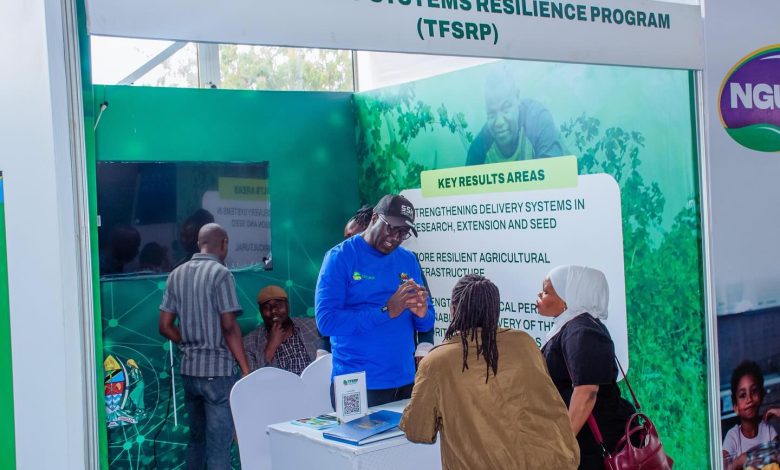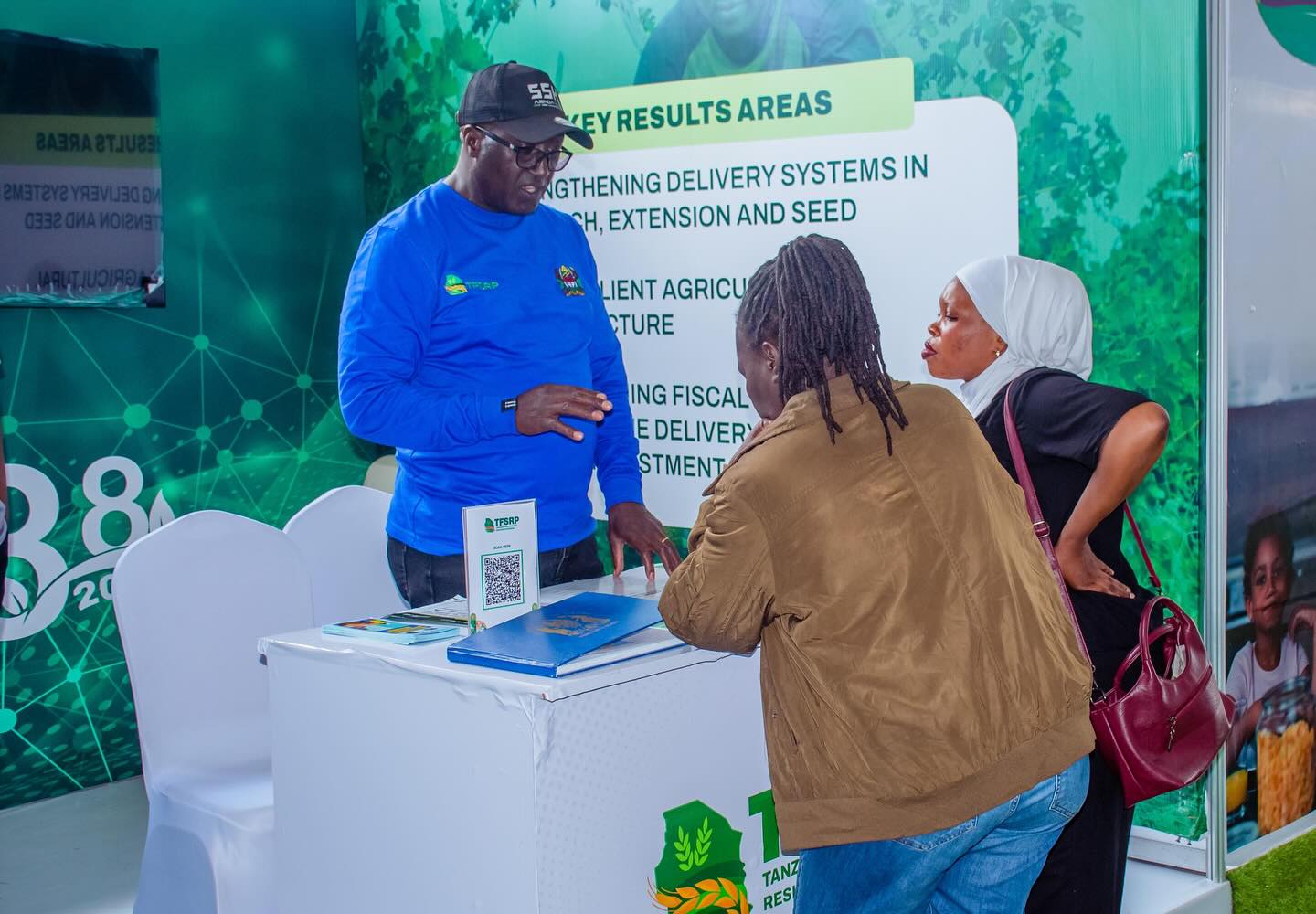TFSRP targets digital extension training for farmers

DODOMA: THE Tanzania Food Systems Resilience Programme (TFSRP) plans to train over 4,000 agricultural extension officers in digital extension services by 2028, targeting approximately 1.5 million farmers nationwide.
Launched in 2023 under the Ministry of Agriculture, the five-year programme seeks to strengthen national food production and address climate change challenges.
Speaking at the Nane Nane Agricultural Exhibition in Dodoma, TFSRP Project Coordinator, Mr Timotheo Semuguruka noted that the country needs over 20,000 extension officers but currently has only 6,700.

“We haven’t even reached 40 per cent of the required number, and recruitment takes time due to government procedures,” he said.
Mr Semuguruka said the programme has already trained 1,701 extension officers nationwide, equipping them with digital tools such as tablets, knowledge in soil services and access to a national digital platform that provides farmers with real-time information.
“The system offers alerts on emergencies like pest outbreaks or extreme weather and allows registered extension officers to be located by region and specialty, making service delivery more targeted and efficient,” he explained.
The e-extension system is a key innovation of the programme, enabling farmers to receive remote advisory services by uploading photos of crop damage and receiving expert feedback without needing a physical visit.
Mr Semuguruka also highlighted an innovative ‘Uber-style’ model introduced by the programme, where extension officers are traceable via GPS and every service provided is digitally recorded.
“This approach is helping close the service gap. Officers are evaluated based on the data they submit, which can even support their career advancement,” he added.
In partnership with the Tanzania Agricultural Research Institute (TARI), TFSRP is also showcasing climate-resilient seed varieties at the exhibition, including TARI BEAN 6 through 11, improved green grams and various vegetables developed to address climate-related farming challenges.
ALSO READ: With a 128 percent target, Tanzania scores high in food systems
One of the standout varieties is TARI BEAN 7, introduced as a replacement for the long-used Lyamungo 90, aimed at improving productivity under changing weather conditions.
These services and innovations are being showcased at the TFSRP pavilion at the ongoing Nane Nane Exhibition at Nzuguni Grounds.





